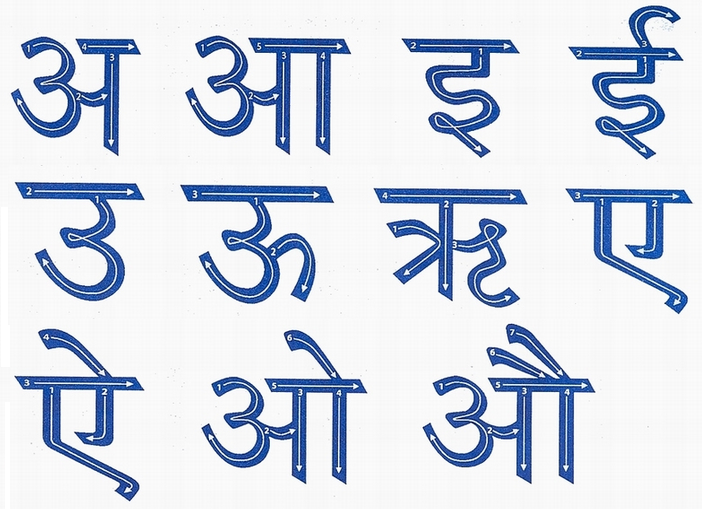Several Sanskrit words are part of Today’s English language.

By Sabrina Rustgi
In our modern world, words from classical Sanskrit have become so embedded in our daily lives that the English language benefits from its ancient karma. While the word karma literally means “action†or “deed,†we have embraced its principle of cause and effect where the intent and actions of an individual will influence the future of that individual. It is amazing that with the introduction of one single Sanskrit word “karma†that a spiritual or ethical concept is conveyed so simply.
With the plethora of Sanskrit words used in the English language, we should appreciate their origin. The Sanskrit word “avatar,†directly translates into “ava†meaning “down†and “tarâ€Â meaning “to cross†to give the word “avatara,†which means to come down or descent. In Sanskrit and Hindi, an avatar is an incarnate divine teacher. While in computing, an avatar is an icon or figure representing a particular person in computer games or Internet forums. More commonly, in English an avatar is an embodiment or manifestation of a person or idea, for example Mother Teresa is an Avatar of Mercy.
Another very familiar Sanskrit word, guru, directly translates as “substantial or grave.†In Buddhism and Hinduism, a guru refers to a spiritual teacher, especially one who imparts initiation. In modern English usage, we consider a guru as an expert or influential teacher, such as “a management guru.â€
The title of Pundit filtered into the English language during British colonialism and the word referred to an Indian Legal scholar. The Sanskrit word “pandita,†translates into “learned,†and in Hinduism, a pundit is a teacher of any field of knowledge in Hinduism, especially the Vedic scriptures. Currently, the usage of Pundit refers to a person who gives opinions in an authoritative manner usually through mass media. In modern times, we all understand what it means to rely on a “political pundit†or a “Wall Street pundit.â€
The Sanskrit language has an elegant simplicity that belies the fact that complex thoughts are attached to simple words. By using Sanskrit words in English we are able to convey concepts that enrich our daily communication. A familiar Sanskrit title given to Mohandas Gandhi was that of “Mahatma.†While current generations may mistake it for Gandhi’s name, in fact it means “Great Soul.†Only a language like Sanskrit can encompass aspects of a secular, political leader who made a spiritual impact on the World to give the title of Mahatma.
(Sabrina Rustgi is a student at Baldwin School in Bryn Mawr, Pennsylvania. She is a student of Sanskrit. Email: rustgi5@aol.com)



